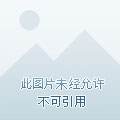As the saying goes, the ancestors summed up the natural phenomena they saw in their thousands of years of life, processed the wisdom they had practiced, gathered and sorted out the philosophy of life they felt, and finally described it in simple and understandable words.
Folk sayings are often the testimony of the humanistic history of the ancestors, the testimony of folk customs and customs, and the unique psychological performance of our ancestors, as well as the special cognitive mode under the influence of traditional culture.
There is such a saying in the folk, "Men do not do three, women do not do four, the elderly do not pass nine but ten", so what does this sentence really mean?

Men don't do three, women don't do four
First of all, let's look at the sentence "men don't do three, women don't do four", which actually means that men generally do not do thirty birthdays, while women generally do not do forty birthdays. So, why is there such a statement?
In fact, there are two reasons for this. First, whether it is thirty or forty years old, in fact, it is not too old. Therefore, it is not suitable for longevity.
The second reason is because "three" and "scatter" are harmonic sounds, and "four" and "death" are also harmonic sounds, so the old ancestors will be more taboo to mention these two ages, let alone do thirty or forty birthdays.
Seventy-three, eighty-four, the king of Yama did not call himself to go
In addition, there is a folk saying that "seventy-three, eighty-four, yama does not call himself to go". Why are they seventy-three and eighty-four, these two ages?
These two ages are said to be related to two Confucian sages. It is said that Confucius died at the age of 73 and Mencius died at the age of 84, so the old folk people believe that even saints cannot pass the hurdle of "seventy-three, eighty-four", let alone ordinary people.
Therefore, the folk old people generally do not pass the birthday of seventy-three or eighty-four, these two ages.
In addition to this, there is another way of saying these two ages. People take twelve as a cycle of life, which is what we often call the year of life. Seventy-two years old is a life year, while seventy-three years old is the beginning of the seventh twelve years, and eighty-four years old is the end of the seventh twelve years.
In traditional culture, seven has a special meaning, people usually think that "7" is a change in the cycle of life, with the original meaning of the cycle, so as the first year of the seventh twelfth year, 73 years old, and the last year 84 years old, are very important years to pay attention to.
Over nine but not ten
Folk have "qingjiu does not celebrate ten", "do nine do not do ten", which means that when doing birthday for the elderly, it must be done one year in advance, such as eighty years old, to be done at seventy-nine; ninety years old, to be done at eighty-nine.
This is because the ancients believed that "full is overflowing", and "ten is full, full is loss", "full" means "end", so people will not "pass ten". "Nine" is different, "nine" means long, long and long, and at the same time nine is the extreme number, large and dissatisfied, so people usually live the "nine" life.
At the same time, people in many places also have the saying "every nine years", and every time there is an age with "nine", such as seventy-nine, eighty-nine, etc., these are "Ming Nine". People think that "every nine years" and "the year of life", like the "year of life", are the cycle and "threshold" of each stage of life, so future generations of descendants will come to celebrate the birthday, hoping to relieve the ominousness.
In life, people think that these age taboos are actually just a good wish of the ancestors, although these exquisite, have a great impact on our lives, but this does not mean that they are scientific.